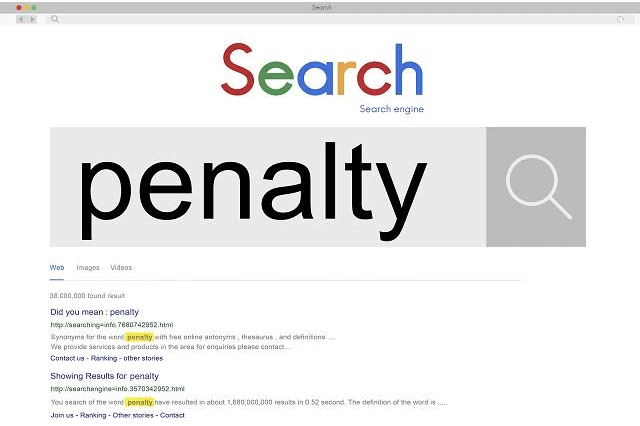Overview: How much will I pay in property tax penalties in Texas?
Texas has one of the highest property tax penalties in America. Property taxes that aren’t paid by 31st January every year automatically result in delinquency and penalties, interest and other charges start pilling up fast.
Summary of Texas Property Tax Penalties
Delinquency results in a 7% penalty charged on 1st February. If the taxes remain unpaid in February, the penalty will keep increasing by 2% every month resulting in 9% in penalties on 1st March, 11% in April and so on. The 2% increase continues until 1st of July.
The penalty reduces to 1% every month that the tax and penalties go unpaid. However, you will be charged a 20% in attorney/collection fees on 1st July. If you don’t settle your tax obligations by July, you will be looking at 41%+ in property tax penalties, interest, and other fees (attorney fees). By December, you are bound to pay 47.6%. Here’s a more detailed summary of Texas property Tax penalties.
As seen above, property tax penalties can pile up very fast. The importance of doing something about your overdue property taxes can’t, therefore, be overemphasized.
Consequences of Not Paying Texas Property Taxes and Related Penalties
A series of events happen when you don’t pay property taxes and accrued fees/penalties in Texas.
I. Tax delinquency notices
You should expect to start getting notices if you are overdue on your property taxes. Tax delinquency notices are sent multiple times by a delinquent tax attorney acting on behalf of the tax collecting authority.
II. Installment payment plan
If you want to pay overdue taxes, some tax collectors can allow payment plans for delinquent taxes up to 36 months. However, local tax collecting authorities in Texas aren’t required to give installment plans. In fact, such an occurrence is rare.
III. Tax exemptions
Property owners in Texas can seek tax exemptions for overdue property taxes. Exemptions exist for different kinds of property owners and property. For instance, elderly individuals (aged 65 years and above), disabled persons, heirs and spouses of deceased property owners, veterans, and owners of uninhabitable or unstable residences in Texas can get property tax exemptions.
IV. Legal suit
In most cases, attorneys acting on behalf of local tax collectors file lawsuits against delinquent property owners in Texas. Failing to respond to such lawsuits can lead to unfavorable judgments against a property for overdue taxes and related costs.
V. Foreclosure
If you don’t pay your overdue taxes and accumulated Texas property tax penalties for an extended period, you risk losing your property. Foreclosure is the worst-case scenario. It is provided for in the Texas Tax Code (Sec. 32). A legal claim on assets belonging to persons who fail to meet their tax obligations (tax lien) can be placed on your property.
A tax lien makes it possible for a tax assessor to foreclose on your property for overdue taxes. A 21-day notice is given prior to a foreclosure sale. Failing to provide a valid court defense to stop foreclosure will result in a tax sale order meant to sell property and recover overdue taxes and penalties.
Tax sale processes in Texas
As per Texas Tax Code 33.41, taxing authorities in Texas can start foreclosure processes any time after delinquency. If a property owner doesn’t pay overdue tax and penalties or have a valid defense stopping foreclosure, a court judgment will be entered, and the property in question will be sold at an auction.
If the property isn’t sold at a tax sale, it becomes the property of the respective Texas county. The county can sell the property later. Before a tax sale, a property owner must receive a written notice via mail or delivered in person. As per Texas Tax Code 34.01, tax sales must have a date, time, and location of the property. The written notice must also be posted publicly or published in a local daily or newspaper.
Can I stop a tax sale on my Texas property?
To stop a tax sale, you must pay off overdue taxes and resulting Texas property tax penalties. If you don’t have money, you can consider taking a property Tax loan from notable providers like Property Tax Loan Pros and paying off everything before a tax sale. Curing delinquency automatically releases the tax lien halting foreclosure.
If you don’t take action and cure the delinquency, tax authorities will have no option but to sell your property via an auction to the highest bidder. The property can only be sold at a minimum price equal to or more than the market value or the total amount of tax, interest, and penalties owed. As mentioned above, the county will take ownership of the property if there is no winning bidder.
Can I get my property back after foreclosure and a tax sale?
Even if the worst happens and your property is sold because you haven’t paid Texas property taxes and related penalties, you have a chance to redeem your property as per Texas Tax Code 34.01.
Generally, individuals whose property has been foreclosed because of property taxes in Texas have two years to get back their property. The two years begin from the date of filing the deed in county records.
To redeem property, you must reimburse the bidder who purchased your property at the tax sale price plus additional costs such as the deed recording fee, the taxes, interest, penalties, and costs paid on the property, as well as a 25% redemption premium (of aggregate total) if you choose to redeem your property during the first year and 50% if you are redeeming during the second year.
The Best Option to Consider to Avoid Texas Property Tax Penalties
If you fall behind on your property taxes in Texas and can’t secure a tax exemption, you must find a way to get money or risk foreclosure. Instead of letting the county take your property and redeeming it at unnecessary costs later, you are better off just taking a Texas property tax loan from a renowned lender and settling your overdue taxes.
Property Tax Loans Pros are renowned lenders who offer quick and affordable residential and commercial property tax loans to help Texas property owners that fall late on their property tax obligations.
You don’t need a good credit score, application fees, prepayment penalties, or any other hurdles faced by property owners in need of urgent property tax loans! Enquire NOW. CALL 866-531-7678, Email: Info@propertytaxloanpros.com.



